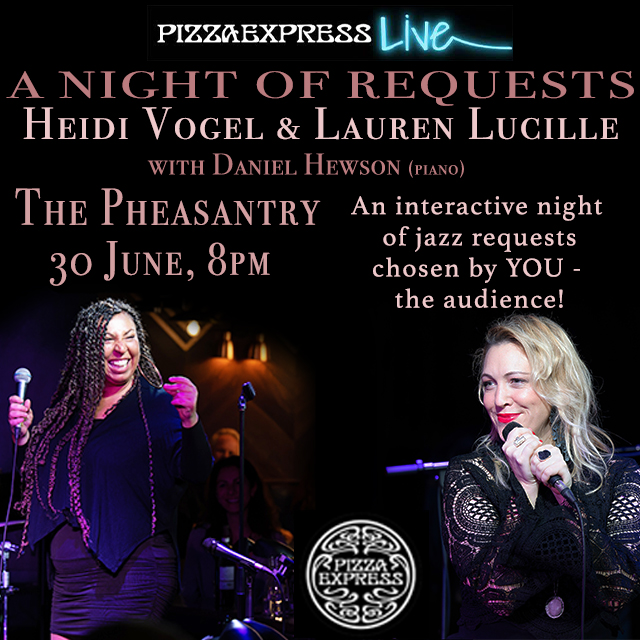LJN continues to log and to publish the correspondence instigated when Nigel Price and 68 other signatories wrote to the DCMS, and here we publish a letter from John Spellar MP, on behalf of APPJAG to Julia Lopez MP, one of the ministers at DCMS.
UPDATE: A tiny chink of light. On 26 April the DCMS re-opened the “Supporting Grassroots Live Music Fund” with applications open till May 2023 for a grand total of £1.5m, and a detail-heavy set of requirements to apply for small grants in the 15-page guidance booklet.

Photo credits: Chris_McAndrew (Spellar) / Richard Townshend (Lopez)/Creative Commons
FULL TEXT OF LETTER FROM JOHN SPELLAR MP
Julia Lopez MP
Minister of State for Media, Data and Digital Infrastructure
4th Floor
100 Parliament Street
London
SW1A 2BQ
22nd March 2022
Dear Ms Lopez
Not yet a subscriber of our Wednesday Breakfast Headlines?
Join the mailing list for a weekly roundup of Jazz News.
Your Ref: MC2022/02709/SR
I received a copy of your reply of the 18th March to Nigel Price’s letter to you of the 17th February.
I and the All Party Parliamentary Jazz Appreciation Group were disappointed in your reply for the following reasons.
Nigel’s letter specifically flagged up a number of issues that have deleteriously affected the UK’s Grass roots jazz venues
“The funds recently allocated via the ‘Cultural Recovery Fund’ and the ‘Emergency Grassroots Venues Fund’ has simply NOT REACHED grassroots venues. We have already seen several clubs close their doors permanently and the future of dozens of others is now hanging by a thread.
We cannot allow this vital part of our heritage to be eroded.
The issue is very specific. Without permanent premises or company status, any application to Arts Council England’s current Cultural Recovery Fund or the Emergency Grass Roots Venues Fund is prohibited. Around 90% of UK jazz venues therefore do not qualify for any financial assistance……….This is surely not a workable scenario and needs to be addressed”.
Problems were also highlighted with regard to the complexity of the Arts Councils Grantium Funding Scheme.
Your reply to Nigel states that organisations had to be formally constituted as a business or a charity and the operation of a permanent performance venue was not a condition of CRF support. It is further stated that the CRF was a “scheme specifically targeted at grass roots music venues explicitly including jazz venue” and then it is stated that the Government chose not to make the scheme open to individuals as a result of the135 recipients mentioned only 6 venues were jazz promoters receiving a total of £82k which is 2.4% of the total fund of £3,367, 039. Volunteer promoters many of whom are individuals were unable to access funds. The very people who are the warp and weft of the Government’s ‘levelling up’ agenda.
What was omitted from the response to Nigel Price was the £1.5 billion recovery fund was designed to support the survival of cultural and heritage organisations that are of international or national cultural significance, or that contributed to the levelling-up agenda, and were at risk of no longer trading viably by the end of this financial year. Swathes of individuals and volunteer organisations crucial to a healthy music scene fell through this particular crack. Bands and musicians do not suddenly arrive at the O2 Arena there is an infrastructure that assiduously works to get them there and if that infrastructure is left to flounder through a lack of investment, the UK will lose its competitive edge, in terms of music development, music exports and “soft power”.
It is crucial that financial support is earmarked at the volunteer network of jazz promoters and the same will apply to many other music and folk clubs. What is urgently required is a fund that can be accessed by volunteer promoters so they can get back to promoting and ensuring the ecology of the UK jazz scene continues to flourish and provide the touring circuits for emerging and remerging talent.
With regard to the assertion that cross-economy support was in place for freelancers through the Self-Employment Income Support Scheme. Clearly there was a woeful lack of research into how musicians and jazz musicians in particular work and earn a living and work.
Here is a case study of a jazz musician and educator who was caught in the trap where the Government required self employed musicians in colleges to be placed on PAYE and contracted only for term time employment.
“I am one of, very many, performing musicians who have been caught in a grey area between government support for self-employment and being paid as an hourly paid lecturer at leading conservatoires. I typed in my UTR and was told that I could not get the subsidy as a self-employed musician. My PAYE payment, as an hourly paid lecturer meant that my earnings as a musician were just under the threshold. Unfortunately, my concerts have all been cancelled and I cannot be furloughed as an hourly paid lecturer. My jazz concerts would have kept me over the summer until the beginning of term and teaching was resumed. I am an international recording artist, musician and teacher and feel that this arbitrary 50 percent rule for self-employed musicians is absolutely ridiculous.”
It should be noted that to qualify for any financial support from HMRC then at least 50% of the total taxable income must come from self-employment (not that your profits must be 50% of the self-employed income). Before the PAYE imposition this musician would have qualified for financial support. Thirty eight percent of Musician’ Union members have not qualified for emergency funding or for furlough and self-employment support schemes (SEISS) either of the schemes in the first place.
Volunteer promoters and musicians have been poorly served by the Cultural Recovery fund and in most cases not served at all. A prima facie example of this is the the link you gave to Applications for Supporting Grass Roots Live Music Projects. Firstly this scheme opened in November 2021, was poorly advertised and closes on the 22nd March 2022. The total amount allocated of £1.5 million is derisory considering the number of volunteer promoter and venues that currently exist. This matter needs to be urgently addressed and a recovery fund set up to help volunteer promoters.
Finally your ultimate paragraph implies that Nigel Price is a Member of Parliament. I quote from your letter; “I hope my response is helpful and your constituent is reassured………” For information Nigel Price is a world class guitarist resident in the UK, his details can be found at: https://nigethejazzer.com/
Yours sincerely
John Spellar MP
Categories: News












Recent Comments